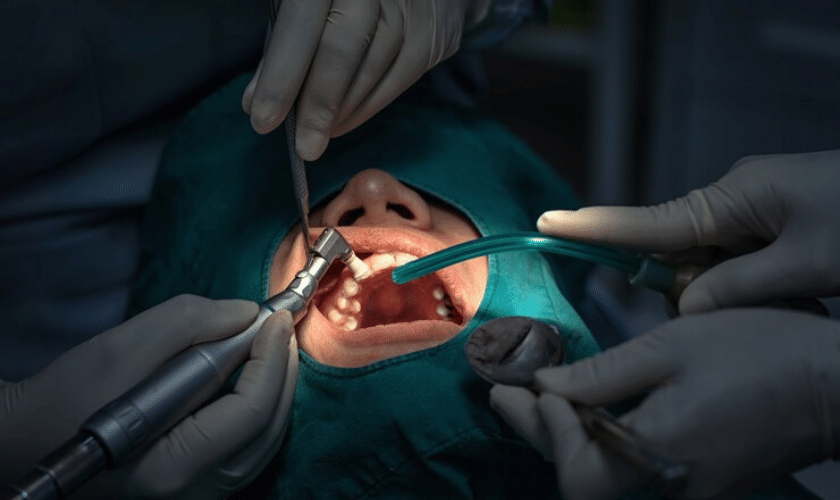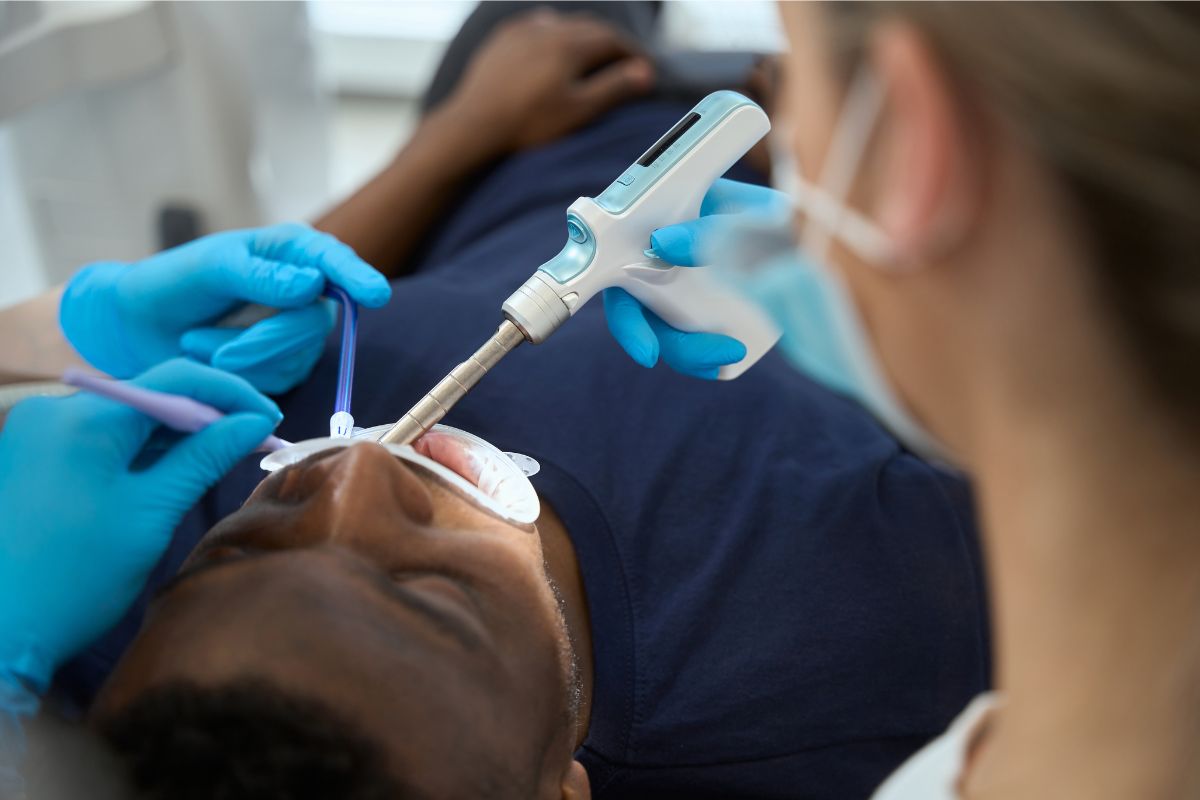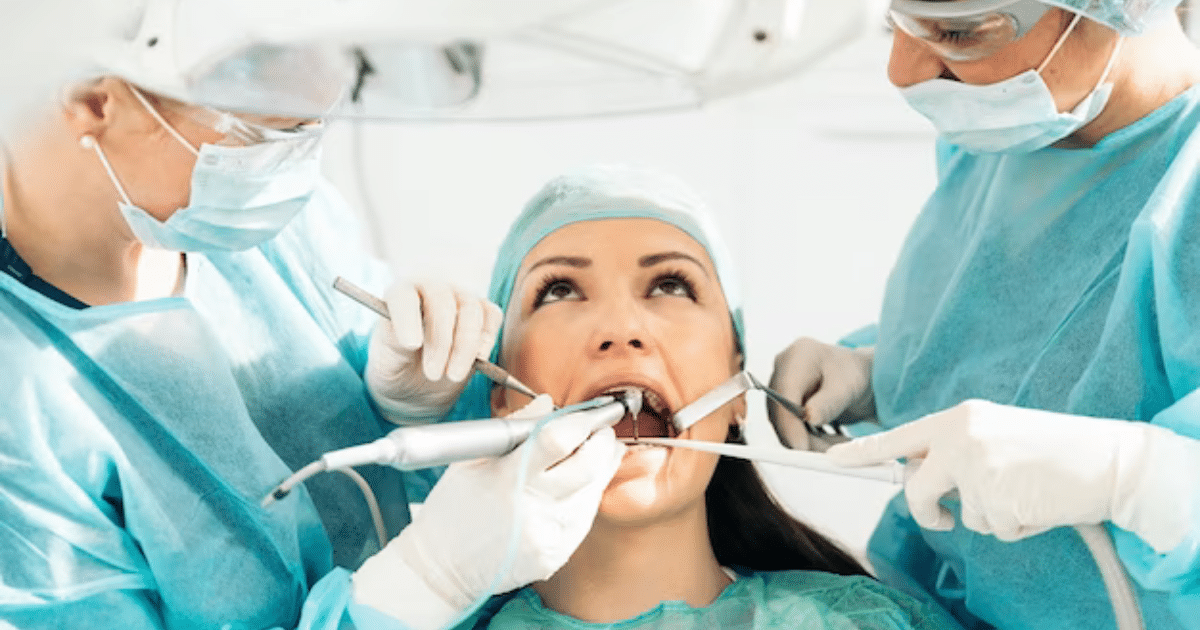
Are you dreading the post-surgery swelling that often accompanies oral procedures? Don’t worry, we’ve got you covered! In this blog post, we will share 7 effective ways to reduce swelling after oral surgery so you can recover quickly and comfortably. Say goodbye to puffy cheeks and hello to a speedy recovery with these helpful tips!
Oral surgery is a common procedure that involves the manipulation of tissues in the mouth, such as teeth, gums, or jawbones. It can be performed for various reasons, including tooth extraction, wisdom teeth removal, dental implant placement, or corrective jaw surgery.
One of the most common side effects of oral surgery is swelling. Swelling occurs when fluid accumulates in the tissues surrounding the surgical site due to inflammation and increased blood flow. It is a natural response of the body’s immune system to injury or trauma.
While some degree of swelling is expected after any surgical procedure, excessive swelling can cause discomfort and delay healing. Therefore, it is essential to take measures to reduce swelling after oral surgery. In this section, we will discuss everything you need to know about oral surgery and swelling.
Types of Oral Surgery
There are several types of oral surgeries that may lead to postoperative swelling. These include:
1) Tooth Extraction: This involves removing a tooth from its socket in the bone.
2) Wisdom Teeth Removal: The third molars (wisdom teeth) often require surgical extraction due to their position at the back of the mouth.
3) Dental Implant Placement: A dental implant is a titanium post surgically inserted into the jawbone to replace missing teeth.
4) Orthognathic Surgery: Also known as corrective jaw surgery, it aims to correct misaligned jaws and improve facial appearance and function.
Symptoms of Swelling After Oral Surgery
The severity and duration of swelling vary depending on the type of surgery, individual response, and postoperative care. However, there are some common symptoms associated with postoperative swelling, including:
1) Visible bulging or puffiness around the surgical site
2) Pain or tenderness in the swollen area
3) Tightness or stiffness in the jaw muscles
4) Difficulty opening the mouth fully
5) Difficulty breathing through the nose due to nasal congestion
6) Alterations in taste perception
7) Discoloration of skin at the surgical site (bruising)
Oral surgery can lead to significant postoperative swelling that can hinder proper healing if not managed effectively. In the next section, we will discuss some effective ways to reduce swelling after oral surgery.
Why is Swelling Common After Oral Surgery?
Swelling is a common side effect of oral surgery and can be a cause for discomfort and concern for patients. But why does this happen? Understanding the reasons behind swelling after oral surgery can help patients better prepare and manage it.
- Inflammation:
The most common reason for swelling after oral surgery is inflammation. When any part of our body undergoes trauma or injury, our immune system responds by sending cells to the affected area to fight off infection and promote healing. This leads to an increase in blood flow, causing the area to become red, warm, and swollen. - Tissue damage:
During oral surgery, there is bound to be some tissue damage as incisions are made and tissues are manipulated. This damage triggers the release of chemicals that also contribute to inflammation and swelling. - Trauma from surgical instruments:
The use of surgical instruments during procedures such as wisdom tooth extraction or implant placement can also lead to tissue trauma, which results in swelling. - Accumulation of fluids:
Sometimes, after oral surgery, there may be an accumulation of fluids in the surgical site due to improper clot formation or breakdown of blood clots. This can cause additional pressure on surrounding tissues, leading to swelling. - Reaction to anaesthesia:
In some cases, patients may have an allergic reaction or sensitivity to the anesthesia used during oral surgery which can result in localized swelling around the surgical site.
It is essential to note that not all types of oral surgeries will result in significant swelling – it depends on factors such as the type and complexity of the procedure, individual healing response, and proper post-operative care.
7 Effective Ways to Reduce Swelling After Oral Surgery
After undergoing oral surgery, it is common to experience swelling in the affected area. This can be uncomfortable and even painful, but there are ways to reduce the swelling and promote a faster recovery. In this section, we will discuss some effective ways to reduce swelling after oral surgery.
1. Apply Ice Packs
One of the most immediate and effective methods to reduce swelling is the application of ice packs to the affected area. Ice causes vasoconstriction, which reduces blood flow to the area, thereby reducing swelling and pain. It’s recommended to apply ice packs for 20 minutes on and then 20 minutes off, repeating this cycle during the first 48 hours post-surgery. Ensure you wrap the ice pack in a thin towel to prevent ice burn on your skin.
2. Elevating Your Head
When resting or sleeping, keep your head elevated above the level of your heart. This position helps to reduce the pooling of blood in the facial area, thus minimizing swelling. Use pillows to prop yourself up comfortably and maintain this elevated position, especially for the first few nights after your surgery.
3. Taking Anti-inflammatory Medications
Your oral surgeon may prescribe anti-inflammatory medications to help control swelling and pain. These medications, such as ibuprofen, work by reducing the body’s inflammatory response. Always follow your surgeon’s advice regarding dosage and frequency to ensure you’re managing your pain and swelling effectively without risking side effects.
4. Drinking Plenty of Water
Staying hydrated is crucial for your recovery. Water helps to flush toxins from your body and can reduce swelling. Aim for at least 8-10 glasses of water a day. Avoid hot beverages, as they might increase swelling and can discomfort the surgical site. Similarly, steer clear of using straws, as the suction motion can put pressure on your surgery site.
5. Using Arnica Gel or Cream
Arnica, a homeopathic remedy, is known for its anti-inflammatory properties and can help reduce swelling and bruising. Applying arnica gel or cream around the swollen area (not on open wounds) can aid in quicker recovery. Arnica is available over the counter in most pharmacies, but it’s always a good idea to consult with your oral surgeon before using it.
6. Eating Soft, Cold, and Nutritious Foods
In the days following your surgery, opt for soft, cold foods like yogurt, smoothies, and ice cream. Cold foods can help soothe the area and reduce swelling, while soft foods will ensure that you’re not putting additional strain on your jaw and surgical site. Incorporate nutritious options to give your body the vitamins and minerals it needs to heal.
7. Following Post-Surgery Care Instructions
Adhering to the care instructions provided by your oral surgeon is paramount. This includes guidelines on oral hygiene, activities to avoid, and signs of potential complications. The instructions are tailored to promote healing, reduce the risk of infection, and consequently minimize swelling.
In conclusion, while swelling is a normal part of the healing process following oral surgery, it doesn’t have to prolong your discomfort or recovery time. By implementing these seven strategies, you can help ensure a smoother, quicker healing journey. Remember, every individual’s recovery process is unique, so it’s essential to listen to your body and consult with your oral surgeon if you have concerns or questions during your recovery period.
FAQS
1. How can I tell if my swelling is normal or if there’s an infection?
Normal Swelling: It’s common for swelling to peak 2 to 3 days after surgery and start to decrease gradually over the next few days to weeks, depending on the type of surgery. The swelling may be accompanied by bruising and discomfort, which are part of the body’s natural healing process.
Signs of Infection: If the swelling worsens after the initial peak period, becomes increasingly painful, or is accompanied by redness, warmth, pus, or fever, these could be signs of an infection. In such cases, it’s important to contact your oral surgeon or healthcare provider as soon as possible for evaluation and treatment.
2. Is it normal to have numbness after oral surgery, and how long will it last?
Numbness immediately following oral surgery is typically due to local anesthesia and should wear off within a few hours. However, some procedures, particularly those involving the lower jaw, can affect a nerve, potentially causing numbness or a tingling sensation in the lips, chin, or tongue for a longer period. While this is usually temporary, it can last for days to weeks or, in rare cases, months. If you experience prolonged numbness, it’s important to discuss this with your surgeon.
3. Can I brush my teeth after oral surgery?
Yes, oral hygiene is crucial for preventing infection and promoting healing. However, you should be gentle and avoid the surgical site for the first 24 hours. Your surgeon will provide specific instructions on how to brush your teeth and care for your mouth. Typically, it’s advised to use a soft-bristled toothbrush and to be gentle around the operated area to not disrupt the healing process.
4. When can I start exercising after oral surgery?
It’s recommended to avoid strenuous physical activity for the first 48-72 hours after surgery as increased heart rate and blood pressure can lead to more swelling and bleeding. Light walking is usually fine, but you should avoid heavy lifting, running, or any activity that could impact your recovery. Gradually resume exercise based on how you feel and with your surgeon’s approval.
5. What should I eat after oral surgery?
Following oral surgery, it’s best to start with soft, cold foods that don’t require much chewing, such as yogurt, smoothies, applesauce, and ice cream. Cold foods can help soothe the area and reduce swelling. As your healing progresses, you can gradually introduce more solid foods. Avoid hot, spicy, crunchy, or hard foods that could irritate the surgical site. Also, stay away from using straws in the initial days, as the suction can disrupt the healing process.


